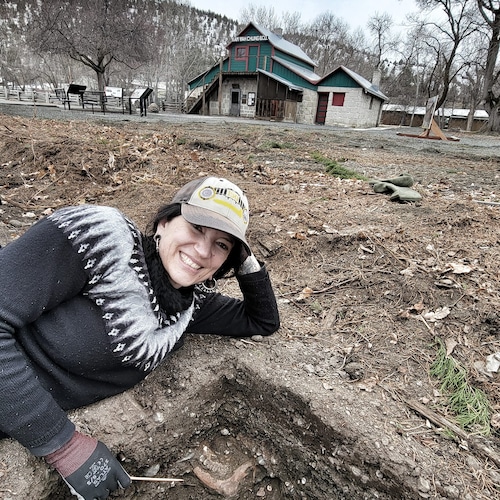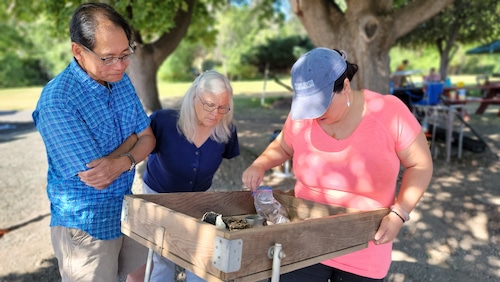Southern Oregon University Laboratory of Anthropology’s ongoing Oregon Chinese Diaspora Project inventorying Chinese heritage sites was awarded $499,743 in the latest spending bill approved by Congress.
The project’s focus since it started in 2016 has been 19th century mining and railroad settlements such as southern Oregon’s Jacksonville and eastern Oregon’s John Day River area. The new federal funding allows “us to think bigger and broader” in researching and documenting the lives of Oregon’s early Chinese immigrants and excavating more sites, said archaeologist Chelsea Rose, director of the SOU Laboratory of Anthropology.
The federal allocation more than doubles the total funding that the Oregon Chinese Diaspora Project has received in its eight-year history.
Rose told The Oregonian/OregonLive the funding will help the project team fill in the gaps in the archaeological and historical record, and the impact Chinese Americans had in canning, fishing, agriculture, ironworks and other industries.
The project team “had no idea of the scale and scope of Chinese American history in Oregon” when they started, yet “every single place we have looked has had sites and stories that we are eager to document and share,” she said.

Archaeologist Chelsea Rose, the director of the Southern Oregon University Laboratory of Anthropology, explored the Kam Wah Chung State Heritage Site in eastern Oregon's John Day.Southern Oregon University
Rose said they are tracking down information on the Chinese Buckaroos in Grant County, a place where the ranching industry that once was supported by Chinese American cooks, sheepherders, foreman and cowboys is still a major driver in the regional economy.
Southern Oregon University’s Oregon Chinese Diaspora Project partners — the Medford District of the Bureau of Land Management, Malheur National Forest, Rogue River-Siskiyou National Forest, Oregon State Parks, Oregon Historical Society and Portland Chinatown Museum — will gather information and select a handful of sites to archaeologically investigate.
“We are also interested in sites that have already been excavated, but maybe never had the time or funding to fully document and report the findings,” said Rose. “For example, there is a large collection from a cannery site we’d like to analyze.”
The project’s Chinese American Advisory Committee is helping to guide and establish priorities. “We also have a wonderful group of engaged experts and partners, and those collaborations are continuously expanding,” said Rose.
The new funding will also incorporate abandoned collections from other archaeological efforts, and will result in a series of field schools, volunteer opportunities, exhibits, digital content and free, public talks and programs, according to Southern Oregon University.
“As with everything we do, we will be creating companion programing to follow our project as we move around the state, and we will be working on ways to further our reach by exhibits and expanding our digital offerings,” said Rose. “We hope that our model can inspire others to come together with a common goal and see where it takes them.”
U.S. Senators Jeff Merkley and Ron Wyden of Oregon submitted a congressionally directed spending request on the university’s behalf as part of the federal Labor, Health and Human Services budget for improvement of postsecondary education.
“The result will be a far greater understanding of the vital roles that Chinese Americans and immigrants have played throughout Oregon’s history,” Southern Oregon University president Rick Bailey said in a news release.
The project, which includes digging, interpreting and touring archaeological sites, and researching censuses and community records, has helped people challenge stereotypes and highlight the transnational lives of the Chinese immigrants and Chinese Americans who helped establish Oregon’s early infrastructure and economic industries, according to Southern Oregon University.
The Oregon Chinese Diaspora Project has won several awards, including from the National Trust for Historic Preservation in November.
— Janet Eastman | 503-294-4072
jeastman@oregonian.com | @janeteastman
